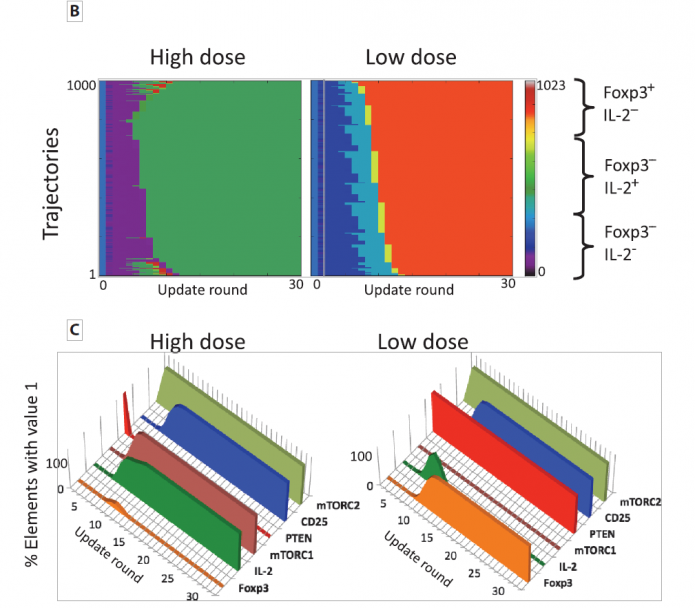Dr. Natasa Miskov-Zivanov and Dr. James Faeder have been featured in the current issue of Science Signaling for their research on – “The Duration of T Cell Stimulation Is a Critical Determinant of Cell Fate and Plasticity.”

Editor’s Summary (via Science Signaling)
CD4+ T cells are broadly classified into two groups: T helper (TH) cells, which mediate the immune response, and regulatory T (Treg) cells, which suppress immunity. Both cell types can arise from the differentiation of naïve CD4+ T cells stimulated through the T cell receptor (TCR) by antigen. Cell fate is thought to arise from differences in the intensity of the TCR signal, with strong TCR signals generating TH cells and weaker TCR signals generating Treg cells. Understanding how to manipulate T cell fate has implications for immunotherapies; for example, generating too few Treg cells can lead to autoimmunity, whereas generating too many Treg cells can suppress antitumor immunity. Miskov-Zivanov et al. developed a logical mathematical model of T cell differentiation focused on early stages of TCR signaling and found that differential activation of TCR signaling pathways by low and high doses of antigen was better modeled as changes in the duration, rather than the intensity, of TCR signaling. Their model predicted, and experiments confirmed, that there is a time window for signaling during which T cell fate is plastic and that varying the duration of stimulation controls the relative proportion of Treg and TH cells produced. The model also predicts that the TH cell phenotype stabilized more rapidly than did the Treg cell phenotype. Together, these data suggest that differential timing of TCR signaling events plays an important role in determining T cell fate.
Citation: N. Miskov-Zivanov, M. S. Turner, L. P. Kane, P. A. Morel, J. R. Faeder, The Duration of T Cell Stimulation Is a Critical Determinant of Cell Fate and Plasticity. Sci. Signal. 6, ra97 (2013).

 See TECBio REU’s feature, “Of lab rats and computer mice”, in the NSF highlights.
See TECBio REU’s feature, “Of lab rats and computer mice”, in the NSF highlights.